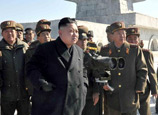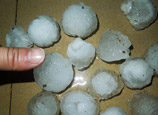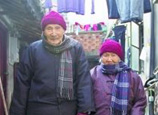
Even when he sings in Mandarin, he likes adding aboriginal accent, which has become his trademark.
From his songs, listeners can feel his love for the aborigines. For example, in his song Handsome Boy from Taitung, he laments about how young people from aboriginal tribes, who are pursuing their dreams in Taipei, have forgotten their origins.
"People from aboriginal tribes usually have darker skin. But many young people cover their skin or try to make their skin whiter," he says.
"It's sad. I want to use my music to tell them that aboriginal music is cool and our own culture is cool."
Matzka says he grew up listening to people singing every day, amid sunshine and barbecue. So, it's natural for him to pick up his guitar and compose songs.
Although his fans and record company describe his music as Taiwan aboriginal reggae, Matzka thinks otherwise. "For me, it's just a strategy by the record company to raise eyebrows or make money," he says.
As he becomes more famous, Matzka says he feels a greater sense of responsibility.
"There are many young people in our tribe who create music. I want to be their good role model. I don't want them to simply follow the trend. They should have their own voices," he says.
Matzka's dream is to record an album of songs in his mother tongue.
"Understanding the lyrics is not the most important thing for me. What means more to me is touching the hearts of listeners with my songs," he adds.

















 What house can you buy with 1 million yuan in China?
What house can you buy with 1 million yuan in China?


![]()
